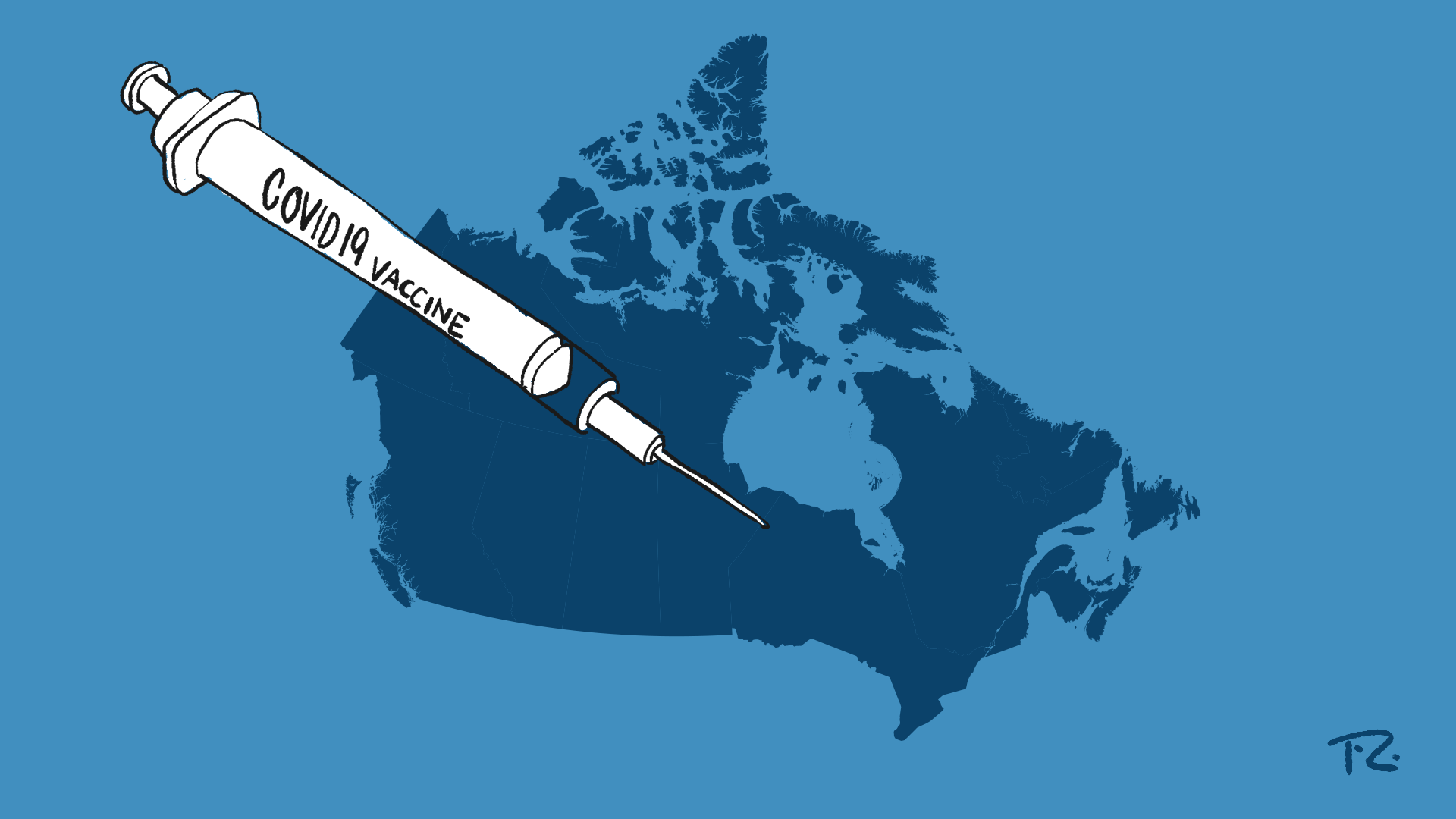With over 100,000 Quebecers vaccinated, the province prepares for mass immunization
Two days before Christmas, Agnes Wong walked into the Berkley Care Centre in North Vancouver to begin her usual shift as a cook. Having worked at the senior home for 15 years, she was feeling particularly nervous that day. It was on Dec. 23 when Wong received her first dose of the Pfizer-BioNTech COVID-19 vaccine.
As a staff member of a long-term care centre, Wong became part of the first phase of Canada’s mass vaccination plan. This phase also includes residents of such care centres, as well as seniors aged 70 and over, frontline healthcare workers, and adults living in Indigenous communities.
Before the procedure, Wong was concerned about the vaccine’s potential side effects, as it was developed in less than a year. Pfizer and Moderna, the only companies whose vaccines have been approved by the Canadian government thus far, have both warned that patients may experience fatigue, headaches, chills, muscle pain, or fever after getting the vaccine.
However, Wong told The Concordian that she only felt slight pain in her left arm, in the area where the vaccine was administered.
“The pain disappeared two days later, so I don’t feel that discomfort anymore. I’m ready to receive the second dose of this vaccine, which should happen in about two weeks,” said Wong.
The World Health Organization recommends people take the second dose of the Pfizer vaccine within 21-28 days. It is expected to cause stronger side effects than the first dose, with 16 per cent of vaccinees aged 18 to 55 having experienced fever after its injection, as well as 11 per cent of those aged 56 and above.
The highest-priority groups are recommended to receive the vaccine before the rest of the population in every province and territory by the National Advisory Committee on Immunization (NACI). However, each province, including Quebec, is responsible for its own vaccination plan.
Over 115,000 Quebecers have been vaccinated as of Jan. 15, according to Health Minister Christian Dubé. The province has already received 162,000 doses of the COVID-19 vaccine, and this number is expected to reach 250,000 next month.
As of now, Canada has vaccinated 1.1 per cent of its population and thus occupies the 13th position worldwide in terms of the COVID-19 vaccination rate. The current world leader is Israel, where a whopping 25 per cent of the population already received the COVID vaccine.
The estimated cost of Canada’s vaccination process remains unknown. However, it will be fully covered by the federal government, meaning all vaccine doses will be free of charge for Canadians.
Going forward, Prime Minister Justin Trudeau announced on Tuesday that the country is “on track to have every Canadian who wants a vaccine receive one by September.” This year, the government expects to receive a total of 80 million vaccine doses from Pfizer and Moderna.
At the same time, Trudeau made it clear that the COVID-19 vaccine will not be mandatory for the general public. The Prime Minister also reassured Canadians that there is no plan to develop a system of COVID-19 vaccine passports, which would act as official proof of one’s vaccination, as he believes it would create a divisive impact on the country.
According to an Ipsos/Radio-Canada poll conducted in late November, 16 per cent of Canadians definitely oppose taking the vaccine, while 64 per cent would be willing to get vaccinated. However, just 41 per cent of Canadians believe that vaccination should be mandatory for all, a poll from the Association for Canadian Studies reveals.
Wong also believes that mass vaccination will help Canada get through such a challenging period and move in a positive direction. She added, “I believe the vaccine should be widely administered because — just like a flu shot — it would give people a sense of security.”
There is no guarantee that all pandemic-related restrictions will be lifted as soon as the vaccine becomes available to the general public. However, mass vaccination is a major step towards returning to ordinary life in Canada.
The quicker everyone gets vaccinated, the quicker we’re going to be able to get back to a semblance of normality,” stated Trudeau.
Graphic by Taylor Reddam




